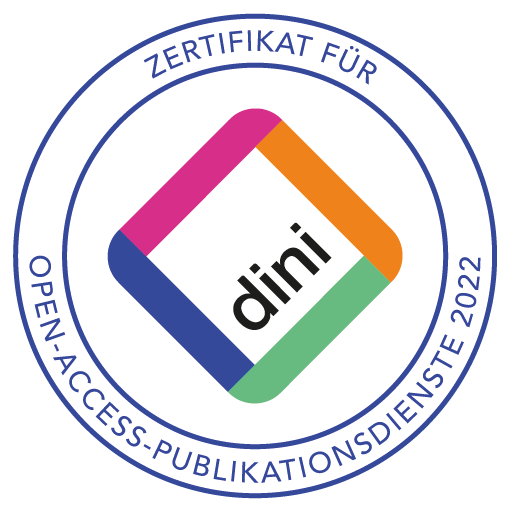Refine
Year of publication
Document Type
- Journal Article (103)
- Online Publication (61)
- Part of a Book (5)
- Book (1)
- Preprint (1)
Language
- English (171) (remove)
Has Fulltext
- yes (171) (remove)
Keywords
- Begriffe (8)
- Forschungsfelder (7)
- Methoden (3)
- Ebsdorfergrund-Rauischholzhausen (1)
- Geschichte 1933-1942 (1)
- Grundlagen (1)
- Judenverfolgung (1)
- Periodisierung (1)
After World War II, many historians in the German-speaking world thought of the relationship between anthropology and history as being largely synonymous with that of ›everyday life‹ (Alltag) and ›structure‹. As Jürgen Kocka (b. 1941) wrote in a retrospective statement to the Zurich historian Rudolf Braun (1930–2012), one of the few prominent figures of ›ethnographic‹ social history especially in the 1970s and 1980s: ›For while we, a younger generation of social historians, have turned to the large structures and processes that conditioned, encompassed and shaped people’s lives, Braun has always supported us, but he insisted – in an untimely but fruitful way – on not missing the people’s »inside«: the experiences and habits, the hopes and disappointments, the everyday life and mentalities of common people in the age of industrialization.‹
This article explores Swiss-Chinese economic entanglements since the 1970s. First, we show how China opened its economy to foreign direct investment (FDI), with Switzerland as a pioneer for Joint Ventures (JVs) in China (1970s–2000s). Second, we outline how Chinese technologies spread abroad, focusing on Chinese telecommunication companies in Switzerland (2000s–2020s). Representatives from the Swiss companies envisioned immense market opportunities in China. Their Chinese counterparts saw JVs as an opportunity to integrate into the world’s production system and acquire technological know-how as well as foreign currency. Building on and further developing this knowledge has enabled Chinese companies such as Huawei to become global market leaders. Technologies and investments are now making their way back to Europe, although not without contestation. In order to better understand Sino-Swiss and other global economic interactions, we need to creatively combine historical and ethnographic methods. This approach highlights the motivations and debates at both the giving and receiving ends, and how they change over time, thereby challenging one-sided narratives of Western and Chinese global capital flows and technology acquisitions.
In this article, we provide a new approach to circular economy in architecture based on the juxtaposition of historical sources and ethnographic data. We bring into dialogue historical practices of rubble reuse in Warsaw after the Second World War with contemporary efforts to salvage components in buildings slated for demolition in Vienna. The analysis of archival and published documents, construction and architecture magazines, and visual sources is combined with a participant observation in a start-up company in Vienna. Our research methods have led us to respond critically to the solutions presented by the current debates on the reuse of construction and demolition waste. For past and present reuse practices, we uncover and scrutinise a complex social and bodily reality often obscured by the images of seamless and endless circulation of construction materials promoted by policymakers, industry leaders, architecture professionals, and positivist academic researchers.
Historical Comparison
(2024)
In his article for Docupedia, Hartmut Kaelble shows that the methodology and practice of historical comparison – as well as the fields and periods of comparison – have changed considerably in recent decades. Now that the theoretical discussions of the 1990s about historical comparison have largely concluded, it is a firmly established, independent part of transnational history.
In this issue
(2024)
As the sociologist Wolf Lepenies asserts in his ›Brief Cultural History of Re-reading‹, ›The second reading – not the first – determines the value of a book.‹ We have now published one hundred articles under the ›Literature Revisited‹ rubric. Nicolas Berg’s text in our previous issue, which re-examined Victor Klempererʼs The Language of the Third Reich. LTI: Lingua Tertii Imperii. A Philologist’s Notebook (first published in 1947), showed once again how fruitful it can be to take a closer look at the history of the creation, publication and reception of older works, and to view them anew from current vantage points. ›Literature Revisited‹ is not limited solely to the presentation and discussion of oft-cited classics; we also re-read books and essays that may have received less attention upon their original publication, yet, in light of current issues and questions, have earned more focused attention. For the authors of these contributions, ›Literature Revisited‹ can provide an opportunity for renewed engagement with works that the authors, in their early careers, may have already subjected to intense scrutiny; however, some authors are reflecting on publications that they are encountering for the first time. In any case, this format has proved so stimulating that we will of course continue it – with four articles in the current issue.
This article examines the appropriation of the slogan ›Black is beautiful‹, which had its origins in the US Civil Rights movement, by the West German Christian Democrats in the 1970s – and thus by a party led by white men. The analysis brings into conversation histories that have mostly been treated separately: the political history of the Federal Republic and the Christian Democrats; the history of political chromatics and political communication; and the history of racism and anti-racism in Germany after 1945. While the focus is on a specific election campaign that ran from 1972 to 1976, the aim is to address larger issues: the first decade of the Christian Democrats in opposition at the federal level and their struggle to appear ›modern‹ in a period of rapid change; and constructions of race in a society that had banned the word ›Rasse‹ from its political vocabulary. One conclusion is that the ›Black is beautiful‹ campaign was in many ways a typical product of the Federal Republic in the 1970s. The ways in which the Christian Democrats dealt – or did not deal – with ›race‹ in this instance reflects a general reluctance among West Germans to acknowledge the more subtle forms that racism has taken since 1945, other than state-sanctioned discrimination.
Movement-oriented topics are in vogue. Under the term mobilities, researchers are investigating the connections between various forms of spatial movement (from alpine tourism to forced migration) as well as between movement and standstill. The article presents the history of mobility as a heterogeneous cross-sectional area. This encompasses several fields of research such as transportation, environmental, migration, tourism and global history. The article recapitulates theoretical and methodological considerations from interdisciplinary mobility studies and highlights current research topics, potentials and limitations of mobility history.
In this text, Katja Stopka argues for closer cooperation between historical and literary studies, both of which are text-based disciplines that work in ways oriented towards source materials and yet remain critical of the textual foundations on which they stand. History and literary researchers take writing and reading as their subject of inquiry; they collect and organize archives of written records, use these archives as repositories of knowledge, and in turn draw on these holdings, for example in critical examinations of cultural patterns of reflection, or historical perceptions in need of correction.
How have Jewish intellectuals reflected on the German language both in relation to and in the aftermath of the ›catastrophe‹? This essay explores one perspective, that of H.G. Adler (Prague, 1910 – London, 1988), a scholar, author, and survivor of the Shoah. Adler’s relationship to and reflections on the German language offer insights into the experience of persecution and survival as well as into the memory and representation of the Holocaust. His vast body of work testifies to both the possibility and the necessity of writing ›after Auschwitz‹, and indeed to the necessity of writing in German after the Holocaust. A survivor of Theresienstadt, Auschwitz, and two satellite camps of Buchenwald (Niederorschel and Langenstein-Zwieberge), Adler went on to write in various forms, from the analytic to the poetic, about National Socialism, antisemitism, and life and death in the concentration and extermination camp system. His scholarly work made an important contribution to establishing the international and interdisciplinary field of Holocaust Studies, and his poetry and novels bear witness to his own personal experiences in the camps, albeit not in a directly autobiographical form.
This article explores the connection between genocide, language and language consciousness by tracing the strange biography of one Yiddish neologism: shabreven. During the Holocaust, the word came to mean both ›looting‹ and ›taking ownerless property‹. It stoked moral and etymological debate among Yiddish speakers in the Warsaw ghetto, while also occupying a prominent position in postwar Polish and Zionist discourses. The term shifted between different semantic, ethical and cultural fields, navigating a delicate balance between various meanings and norms. The discussions around this term help to shed light on key questions: What were the motivations for the study of Holocaust Yiddish neologisms? How did this early postwar Yiddish philological discourse differ from its parallel in German? Shabreven became both a symbol of the genocidal collapse of language and a tool for regaining victim agency in speech.

